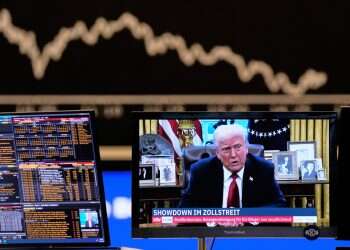The low US dollar, as well as the low GBP and euro, are leading to profits in certain sectors, but losses in others.
Follow Israel Hayom on Facebook, Twitter, and Instagram
The low rates against the Israeli shekel allow people who want to order items from foreign websites pay less. And Israeli consumers should keep in mind that purchases of up to a $75 value are exempt from VAT.
Benny Buchnik, head of the group "I Need It!," explains that he has seen a lot of discussion about items that were "in the air" for a year, and now are in demand online thanks to the low dollar.
"If an item costs 300 shekels, for example, the drop in the dollar means a drop of 20-30 shekels, which isn't small change," Buchnik says.
"This is a good time to buy home consumer goods, but you don't need to make special purchases just for that reason. It's also a good time for people who go abroad every so often to buy things like toiletries … the dollar could drop more, so I wouldn't make any major purchases. If I had something planned for the near future, I'd try to get there early. Since the euro and the pound are also low against the shekel, it affects all the sites. The pound is crashing against the shekel, which is strong, so I'd look there [to British sites]."
Attorney Uriel Lynn, president of the Federation of Israeli Chambers of Commerce, says, "The strengthening shekels is the inevitable result of Israel's positive trade balance, thanks to the amazing growth in exports of goods and services.
"In 2021, that excess reached $21.5 billion. The growth will certainly affect import prices, but won't have an immediate effect … If the shekel continues to strengthen for a few months more, it will have an effect in dropping import tariffs and on the cost of living," Lynn says.
Who loses? Exporters and the high-tech industry. Ayelet Nachmias-Verbin, chairwoman of the Israel Exports Institute, tells Israel Hayom that "because of the inflation, we are very focused on the rising shekel, but it's a process of a few years during which we've suffered all kinds of events. At first, it was COVID, and then the Russo-Ukraine war. We're always in the middle of destabilizing events."
Subscribe to Israel Hayom's daily newsletter and never miss our top stories!




